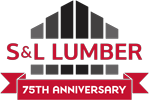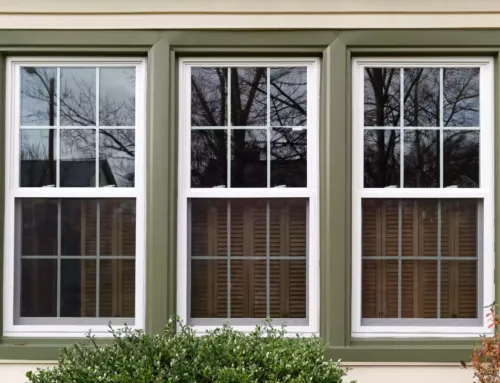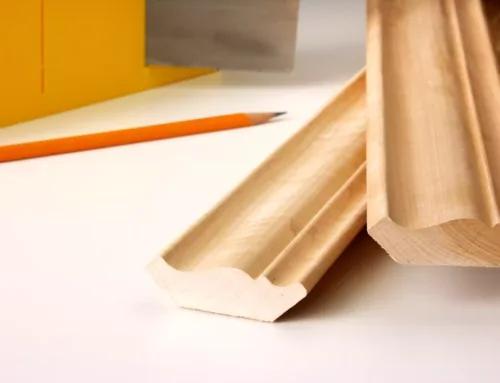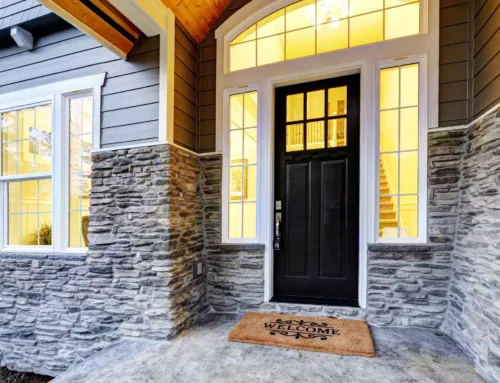What Type of Wood Should You Use for Outdoor Projects?
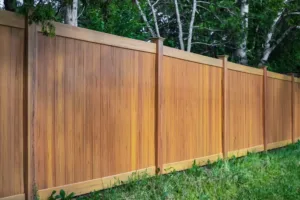
Choosing the right type of wood is crucial for durability, appearance, and the long-term performance of your outdoor projects. Whether you’re building a deck, pergola, fence, or garden furniture, not all woods are created equal. Exposure to the elements demands wood that can withstand moisture, sun, insects, and temperature changes without warping, rotting, or losing its beauty.
As the top lumber supplier in Columbus and across central Ohio, S&L Lumber is here to help you pick the perfect wood for your next outdoor project. Here’s a guide to some of the best wood types for outdoor use and what makes each one unique.
Pressure-Treated Pine
One of the most popular and affordable options for outdoor construction, pressure-treated pine is infused with chemicals that protect it from rot, insects, and fungal decay. It’s commonly used for decks, fences, and framing. While it’s durable and widely available, pressure-treated wood often requires sealing or staining to maintain its appearance and prevent cracking over time.
Pros: Cost-effective, widely available, good resistance to pests
Cons: Requires maintenance, may warp if not sealed properly
Cedar
Cedar is naturally resistant to decay and insects thanks to its oils, making it a favorite for outdoor projects like fencing, decking, and siding. It has a beautiful reddish tone and a pleasant aroma, which also helps repel insects. Cedar is lightweight and easy to work with but tends to be more expensive than treated pine.
Pros: Naturally resistant to rot and insects, attractive grain, low maintenance
Cons: Higher cost, can weather to a gray patina without sealing
Redwood
Known for its rich color and natural resistance to moisture and insects, redwood is a premium choice for outdoor structures. It’s strong and stable, ideal for decks, patios, and garden furniture. Redwood holds up well to weather but requires regular maintenance to preserve its color and finish.
Pros: Durable, visually striking, resistant to rot
Cons: Expensive, limited availability in some regions
Tropical Hardwoods (Ipe, Teak, Mahogany)
For those seeking the ultimate in durability and luxury, tropical hardwoods are an excellent option. Ipe, teak, and mahogany are extremely dense, resistant to decay and insects, and can last for decades with minimal upkeep. They’re often used for high-end decks, outdoor furniture, and architectural details.
Pros: Extremely durable, beautiful grain, low maintenance
Cons: Higher cost, heavier and harder to work with
Cypress
Cypress contains natural preservatives that help it resist decay and insects, making it a solid choice for outdoor projects. It’s known for its straight grain and light color that can be stained or painted. Cypress is commonly used in fence posts, siding, and outdoor furniture.
Pros: Naturally durable, good workability, attractive appearance
Cons: Can be pricey, less common than cedar or pine
Tips for Choosing Wood for Outdoor Projects
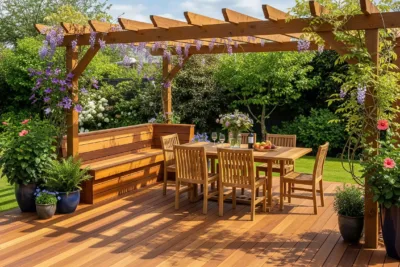 Consider the climate: Wet, humid environments require wood with strong rot resistance, while dry climates may allow for more flexibility.
Consider the climate: Wet, humid environments require wood with strong rot resistance, while dry climates may allow for more flexibility.- Think about maintenance: Some woods require sealing, staining, or regular cleaning to stay looking their best.
- Budget: Balance your budget with the longevity and appearance you want. Sometimes investing in better wood upfront saves money on repairs down the road.
- Sustainability: Look for wood that is sustainably harvested or certified by organizations like the Forest Stewardship Council (FSC).
Find the Right Wood at S&L Lumber
Selecting the right wood for your outdoor project can make all the difference in how long it lasts and how well it withstands the elements. At S&L Lumber, we carry a wide range of quality wood options suited for all kinds of outdoor applications, and our experts can help you choose the perfect fit for your needs and budget.
Stop by one of our locations or contact us today to learn more about our outdoor wood selections and how we can support your next project!
